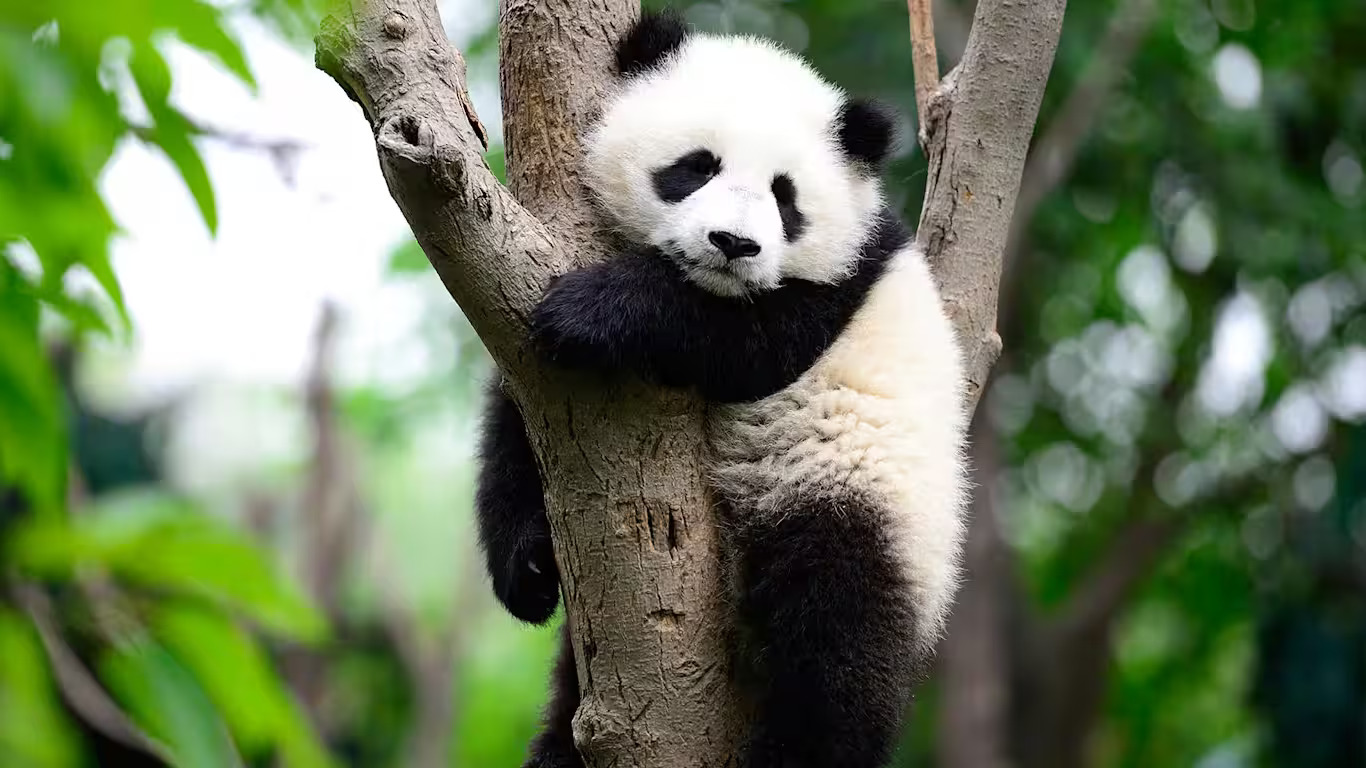
The forest is a wondrous and vital ecosystem that covers about 31% of the Earth's land area. It is home to a diverse array of plant and animal species, and it plays a crucial role in maintaining the balance of our planet's climate. From the towering trees to the intricate web of life that thrives within, the forest is a source of endless fascination and discovery.
In this article, we will delve into 20 amazing facts about the forest, shedding light on its remarkable features, the incredible organisms that call it home, and the profound impact it has on the environment and human life. So, let's embark on a journey through the enchanting realm of the forest, uncovering its mysteries and marvels along the way.
Key Takeaways:
- The Amazon Rainforest, known as the “lungs of the Earth,” produces 20% of the world’s oxygen, supporting life and climate regulation globally.
- Home to 390 billion trees and 10% of known species, the Amazon Rainforest is a vital source of biodiversity, cultural heritage, and scientific discovery.
The Amazon Rainforest produces 20% of the world's oxygen.
The Amazon Rainforest, often referred to as the "lungs of the Earth," plays a crucial role in producing oxygen and regulating the planet's climate. Its vast expanse of trees and vegetation contributes significantly to the oxygen supply, making it a vital natural resource for the entire world.
The Amazon Rainforest is home to approximately 390 billion individual trees.
Within the expansive Amazon Rainforest, an astonishing number of approximately 390 billion individual trees thrive, representing a diverse array of species and contributing to the rich biodiversity of this remarkable ecosystem.
The Amazon Rainforest is the largest tropical rainforest in the world.
Spanning over 5.5 million square kilometers, the Amazon Rainforest stands as the largest tropical rainforest globally, encompassing a vast and diverse expanse of natural beauty and ecological significance.
The Amazon Rainforest is home to 10% of the world's known species.
This immense rainforest is a haven for an incredibly diverse array of flora and fauna, housing approximately 10% of the world's known species. Its rich biodiversity makes it an invaluable asset for scientific research and conservation efforts.
The Amazon Rainforest has been inhabited by indigenous peoples for thousands of years.
Various indigenous communities have called the Amazon Rainforest home for millennia, with their deep connection to the land and its resources playing a vital role in the region's cultural and historical tapestry.
The Amazon Rainforest is home to the Amazon River, the second-longest river globally.
Flowing through the heart of the rainforest, the Amazon River holds the distinction of being the second-longest river in the world, shaping the landscape and serving as a lifeline for the surrounding ecosystems.
The Amazon Rainforest faces significant deforestation threats.
Despite its ecological importance, the Amazon Rainforest faces ongoing threats from deforestation, primarily driven by agricultural expansion, logging, and infrastructure development.
The Amazon Rainforest experiences a high level of annual rainfall.
The Amazon Rainforest receives a substantial amount of rainfall annually, contributing to its lush and vibrant ecosystem and supporting the diverse array of plant and animal life within its borders.
The Amazon Rainforest is a source of medicinal plants.
The rich biodiversity of the Amazon Rainforest has yielded numerous medicinal plants that have been utilized by indigenous communities for centuries, offering potential benefits for modern medicine and pharmaceutical research.
The Amazon Rainforest is a critical carbon sink.
With its vast expanse of trees and vegetation, the Amazon Rainforest serves as a crucial carbon sink, absorbing carbon dioxide from the atmosphere and playing a significant role in mitigating climate change.
The Amazon Rainforest is a UNESCO World Heritage site.
Recognizing its exceptional ecological value, the Amazon Rainforest has been designated as a UNESCO World Heritage site, underscoring its global significance and the need for its protection and preservation.
The Amazon Rainforest is home to unique and diverse ecosystems.
Within its borders, the Amazon Rainforest hosts a wide range of ecosystems, including tropical forests, flooded forests, and savannas, each contributing to the region's ecological complexity and biological diversity.
The Amazon Rainforest is a habitat for iconic wildlife species.
From jaguars and anacondas to macaws and poison dart frogs, the Amazon Rainforest provides a habitat for a myriad of iconic and diverse wildlife species, showcasing the richness of its natural heritage.
The Amazon Rainforest has inspired indigenous folklore and mythology.
The rich tapestry of indigenous cultures within the Amazon Rainforest has given rise to a wealth of folklore and mythology, reflecting the deep spiritual and cultural connections to the natural world.
The Amazon Rainforest faces challenges from illegal logging and mining activities.
Illegal logging and mining pose significant threats to the Amazon Rainforest, leading to habitat destruction, environmental degradation, and disruptions to indigenous communities and their traditional way of life.
The Amazon Rainforest is a source of sustainable livelihoods for indigenous communities.
For many indigenous peoples, the Amazon Rainforest provides a source of sustainable livelihoods, offering opportunities for traditional practices such as agroforestry, fishing, and craft-making.
The Amazon Rainforest is a subject of scientific exploration and discovery.
Scientists and researchers continue to explore the Amazon Rainforest, uncovering new species, studying ecological interactions, and gaining insights into the complex dynamics of this extraordinary natural environment.
The Amazon Rainforest is a vital component of global conservation efforts.
Efforts to conserve and protect the Amazon Rainforest are integral to global conservation initiatives, recognizing its ecological significance and the need to safeguard its biodiversity for future generations.
The Amazon Rainforest serves as a source of inspiration for art, literature, and environmental activism.
The awe-inspiring beauty and ecological importance of the Amazon Rainforest have fueled artistic expression, literary works, and environmental advocacy, highlighting its profound impact on human creativity and environmental consciousness.
The Amazon Rainforest continues to captivate the world with its natural wonders and ecological importance.
The Amazon Rainforest remains a source of wonder and fascination, captivating the world with its unparalleled biodiversity, ecological significance, and the imperative need for its preservation and sustainable management.
The Amazon Rainforest, often referred to as the "lungs of the Earth," holds the distinction of producing 20% of the world's oxygen, underscoring its critical role in global oxygen supply and climate regulation. Its immense expanse is home to approximately 390 billion individual trees, representing a remarkable display of biodiversity and natural abundance. Spanning over 5.5 million square kilometers, the Amazon Rainforest stands as the largest tropical rainforest globally, encompassing a diverse array of ecosystems and species. This immense rainforest is a haven for an incredibly diverse array of flora and fauna, housing approximately 10% of the world's known species and serving as a vital resource for scientific research and conservation efforts. The Amazon Rainforest has been inhabited by indigenous peoples for thousands of years, with their deep connection to the land shaping the region's cultural and historical fabric. Flowing through the heart of the rainforest, the Amazon River holds the distinction of being the second-longest river in the world, shaping the landscape and serving as a lifeline for the surrounding ecosystems. Despite its ecological importance, the Amazon Rainforest faces ongoing threats from deforestation, primarily driven by agricultural expansion, logging, and infrastructure development. The rainforest's rich biodiversity has yielded numerous medicinal plants that have been utilized by indigenous communities for centuries, offering potential benefits for modern medicine and pharmaceutical research. With its vast expanse of trees and vegetation, the Amazon Rainforest serves as a crucial carbon sink, absorbing carbon dioxide from the atmosphere and playing a significant role in mitigating climate change. Recognizing its exceptional ecological value, the Amazon Rainforest has been designated as a UNESCO World Heritage site, underscoring its global significance and the need for its protection and preservation. Within its borders, the Amazon Rainforest hosts a wide range of ecosystems, including tropical forests, flooded forests, and savannas, each contributing to the region's ecological complexity and biological diversity. From jaguars and anacondas to macaws and poison dart frogs, the Amazon Rainforest provides a habitat for a myriad of iconic and diverse wildlife species, showcasing the richness of its natural heritage. The rich tapestry of indigenous cultures within the Amazon Rainforest has given rise to a wealth of folklore and mythology, reflecting the deep spiritual and cultural connections to the natural world. Efforts to conserve and protect the Amazon Rainforest are integral to global conservation initiatives, recognizing its ecological significance and the need to safeguard its biodiversity for future generations. The awe-inspiring beauty and ecological importance of the Amazon Rainforest have fueled artistic expression, literary works, and environmental advocacy, highlighting its profound impact on human creativity and environmental consciousness. The Amazon Rainforest remains a source of wonder and fascination, captivating the world with its unparalleled biodiversity, ecological significance, and the imperative need for its preservation and sustainable management.
Conclusion
The forest is a wondrous ecosystem that sustains life in remarkable ways. From providing oxygen and regulating the climate to offering a habitat for diverse flora and fauna, the forest is a vital part of our planet. Its intricate web of life and natural beauty captivate our hearts and minds, reminding us of the importance of conservation and sustainable practices. Exploring the forest's mysteries and embracing its serene allure can inspire a profound appreciation for the wonders of nature.
FAQs
What are some common threats to the forest?
Deforestation, wildfires, climate change, and invasive species pose significant threats to the health and biodiversity of forests worldwide. These factors can disrupt delicate ecosystems and lead to irreversible damage.
How can individuals contribute to forest conservation?
Individuals can support forest conservation efforts by participating in reforestation initiatives, practicing sustainable consumption, supporting organizations dedicated to forest preservation, and spreading awareness about the importance of forests in maintaining a healthy planet. Every small action can make a meaningful impact on the protection of our forests.
Forests hold countless wonders waiting to be explored. From sustainable management practices that preserve their beauty to the glitz and glamour of Lake Forest's entertainment scene, there's always more to learn. For those seeking adventure, Nantahala National Forest offers extraordinary experiences amidst breathtaking landscapes. Whether you're a nature enthusiast, curious about the inner workings of the entertainment industry, or eager to uncover the secrets of a national forest, these captivating articles promise to enlighten and inspire. Join us on a journey through the fascinating world of forests and the surprises they hold.
Was this page helpful?
Our commitment to delivering trustworthy and engaging content is at the heart of what we do. Each fact on our site is contributed by real users like you, bringing a wealth of diverse insights and information. To ensure the highest standards of accuracy and reliability, our dedicated editors meticulously review each submission. This process guarantees that the facts we share are not only fascinating but also credible. Trust in our commitment to quality and authenticity as you explore and learn with us.


